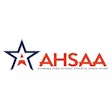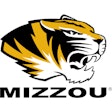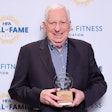|
Copyright 2013 The Washington Times LLC All Rights Reserved The Washington Times |
|
November 12, 2013 Tuesday
|
|
A, PAGE ONE; Pg. 1
|
|
3462 words
|
| Dying to win; Football player pressured back on field after multiple blows to head; family at a loss |
|
By Nathan Fenno THE WASHINGTON TIMES
|
|
Inside the house on the corner, Ken Sheely rests his hands on the kitchen table. Two black bracelets wind around his left wrist. Their white words hint at the truth behind the warm handshake, the easy smile, the offer of something to drink. "PREVENT BRAIN INJURY" The blinds are shut against the October sun in the Germantown subdivision. A few rays sneak into the kitchen, where not one dish or towel is out of place. Otherwise, the room is dark. "There's no language for losing a child," Ken says. "There are words for losing your parents, losing a spouse. But it's so unnatural to lose a child." Soft sobs from his wife, Kristen, emerge from an iPhone perched on the table. On a Monday morning 26 months ago, the phone rang as they were driving. Their son, Derek, had collapsed during preseason football practice at Division III Frostburg State University in the hills of Western Maryland. The parents had been beaming before the phone call. They were returning home from State College, Pa., after dropping off their daughter, Keyton, at Penn State University for her freshman year. Derek would graduate with a double major in history and political science in a few months. During the drive, the parents kicked around graduation gift ideas for the 22-year-old who dreamed of landing a job at the CIA. Definitely forgive the annual $3,000 loans they gave him to attend Frostburg State. Maybe a down payment for a car. "The worst things we ever said to each other," Ken says through a quivering voice, "[were], 'Gosh, what a great life we have. Both of our kids are healthy, doing great in school and have the best of their lives ahead of them. Aren't we lucky?'" Derek never regained consciousness and died from "brain herniation, an acute subdural hematoma and massive vascular engorgement" six days later, on Aug. 28, at the University of Maryland Shock Trauma Center in Baltimore. The death certificate listed traumatic brain injury as the cause. The family believed the death to be a tragic, inexplicable accident. An anonymous email arrived March 22, 2012, that made Ken sick to his stomach. The subject line read: "Information Behind the Death of Derek Sheely." Months passed before Kristen could stand to read the graphic two-page note from an author who identified himself as one of Derek's teammates but stayed behind the pseudonym John Doe. "But now I feel that the family must know that it was not just an 'ordinary concussion,'" the person wrote, "but also negligence on the part of some Frostburg football coaches." In August, the family sued the NCAA, Frostburg State head coach Tom Rogish, running backs coach Jamie Schumacher, trainer Michael Schweitzer Jr. and helmet maker Schutt Sports in Montgomery County Circuit Court. The lawsuit claimed that what happened during the August morning on Frostburg State's football field wasn't accidental. It claimed staffers missed opportunity after opportunity to treat Derek's head injury over three days until, finally, Mr. Schumacher called him a "pussy" for complaining of a headache moments before the man whom teammates regarded as the toughest player on the team fell to the turf. What actually happened, though, extends beyond the grim football tale recounted in the lawsuit's 66 pages to a system that ended in death. The NCAA never investigated what happened. If Frostburg State reviewed the death, no documents exist. Ken's face turns the color of his maroon T-shirt. "Every time he presented [symptoms], they put him back in," he says. Ken's balled-up fist smacks his palm with each word. The sharp voice echoes through the empty kitchen. "We're haunted," Kristen says from the car she is driving back from another visit to State College, "with the terrible unreality all the time." Reminders of Derek stalk them. Watching "Breaking Bad" on television. His Godfather impressions. The No. 40 jersey he wore. Derek. Ken wishes he had asked why his son picked the number. These days, the number appears in the strangest places. A game show prize is $40,000. The trip will take 40 minutes. Forty people are in the room. They live near Route 40. They drive over a peak 240 above sea level. On the best nights, sleep is elusive. They feel as if half of their life has been ripped away. They ask themselves how much worse this could get. They wonder what Derek would do. They remembered the time in middle school when the undersized youngster stood up to a gang of toughs on his school bus. They decided Derek would speak out. Ken runs his hands over the table's smooth wood. Air conditioning kicks on with a low hum. "If I had written a movie about this, people wouldn't believe me," Ken says. "They wouldn't." Unenforced rules Inside the NCAA's labyrinthine bible of regulations are the 195 words of Rule 3.2.4.17. Adopted in 2010, they require each university to have a concussion management plan that includes putting the onus on athletes to report such injuries. Frostburg State had a plan in 2011 when Derek died, 6½ pages of good intentions that could have been cribbed from a textbook. While the organization's bible mentions recruits 495 times and plunges into legislative minutiae on matters such as logo size, movies and the permissible dimensions of institutional notecards, 15 lines are given to head injuries. The NCAA once punished a football player for accepting a free sandwich, imposed $60 million in penalties on Penn State in the Jerry Sandusky sex abuse scandal and recently finished a circuitous three-year investigation of the relationship between a jailed booster and the University of Miami's athletics department. But the NCAA, founded 1906 in response to a swarm of football injuries and deaths, doesn't enforce its own concussion rule. David Klossner, former NCAA director of health and safety, admitted as much in a deposition this year in an unrelated federal lawsuit challenging the NCAA's concussion policy: Q: Are member institutions required to submit their concussion management plans to the NCAA? A: No. Q: Have any member schools been disciplined regarding concussion management plans? A: Not to my knowledge. Q: Has the NCAA considered disciplining any member institutions regarding concussion management plans? A: No, not to my knowledge. In an interview with The Washington Times weeks before the deposition, Mr. Klossner and an NCAA representative said no university, to their knowledge, had been investigated or penalized for violating the rule. A slew of internal NCAA emails made public in July from the unrelated case revealed an organization where staffers worried about liability and some mocked concerns about the issue. Emails suggested a public relations campaign, changed "shalls" in proposed guidelines to "shoulds" and resisted efforts to prevent athletes from returning to play the same day they suffered concussions. Coaches received a pass. "It would not be appropriate," Chris Strobel, NCAA director of enforcement, wrote Mr. Klossner 11 months before Derek died, "for enforcement to suspend or otherwise penalize a coach pursuant to the current legislation even if the student-athlete was required to participate after having been diagnosed with a concussion." The note added that the point of the rule wasn't to make sure universities adhered to the plan unless "systemic or blatant violations" existed. Two months after Derek died, Mr. Klossner exchanged emails with a colleague about an unspecified attempt to audit the plans. "Fyi," Mr. Klossner wrote. "It was a 'no' result for reviewing concussion plans." Frostburg State officials told the Sheelys that they couldn't give them Derek's 2011 Schutt DNA Pro Plus helmet in anticipation of an NCAA investigation. A university statement in August 2011 after the death promised more. "The university," the statement said, "will review such findings as may be available to us, as well as our existing procedures to ensure that FSU is following every contemporary and appropriate standards regarding athletic practices." Citing ongoing litigation, Frostburg State declined to confirm the existence of the would-be inquiry or answer questions about circumstances surrounding Derek's death. A public records request to Frostburg State for documents related to an NCAA or university investigation into any aspect of Sheely's death or the university's concussion policy returned empty last month. Former players interviewed by The Times waited for someone from the NCAA or university to ask them what happened. No one did. "I hate to say it," former lineman Brandon Eyring says, "but it felt swept under the rug." The words - the bible, the emails, all of them - led to Frostburg State's football field. The (deadly) Drill Blood oozed from Derek's forehead during The Drill two days before his collapse. "We all felt this kind of thing was coming," Mr. Eyring says. "Obviously, we didn't know this was going to kill him. But he had something going on. That was the big thing." Four hours of full-contact practice opened the first full day of fall camp at Frostburg State in August 2011. No collisions compared to those generated by the outside zone drill in which fullbacks pummeled each other. Each time, Derek was the first to go. One fullback pretended to be a linebacker and stood defenseless. The other fullback had to hit him at full speed as hard as possible after the quarterback handed off to the running back. The make-believe linebacker couldn't move or brace himself. He had to absorb the shot or face the wrath of Mr. Schumacher, the running backs coach. In theory, this simulated a fullback blocking a linebacker. But players didn't see much connection to any realistic game situation because linebackers don't stand unmoving and defenseless. "It was stupid," former running back and fullback Matt Buchanan said. "That's how everybody who was playing fullback got hurt and people that transferred over to fullback quit. They're like, 'Yeah, I'm not doing that.'" Mr. Buchanan went along with The Drill. Playing time meant keeping your mouth shut at a university where the 2011 team's policies described injury as a "rare event" and insisted "great champions can distinguish between pain and injury." To players, the message was clear: If you're hurt, you're not a champion. Injured players were labeled "gripers," the lawsuit says, and detailed to clean the field when practice ended. "If Derek hadn't died," former lineman Kiven Williams writes in an email, "I'm pretty sure someone else would have died or have been severely hurt from the training staff not correctly doing their job." The Drill became known among players as a concussion factory, the lawsuit says. In 2010, for instance, Derek smacked into Mr. Buchanan during one repetition. Mr. Buchanan was told he kept playing. His doesn't remember that. When they transitioned to team drills, Buchanan couldn't recall basic plays. No coach or trainer pulled him. Instead, Derek suggested he may have a concussion. Mr. Buchanan missed the rest of the season with a concussion. When he returned, he refused to play fullback. Eight of the 11 players listed as running backs or fullbacks on the 2011 roster with eligibility remaining weren't on the 2012 roster. Another former fullback, Tilmon Parker, sustained three concussions in two seasons at Frostburg State before he was advised not to play as a senior. Until a couple of years ago, he didn't consider himself injured if he could walk. No one forced him to stay on the field. "In my case, I didn't say anything about my first couple concussions because I didn't know how serious concussions were," Mr. Parker writes in an email. "I think a lot of us players and coaches included were brought up in football to look at concussions as an injury you could easily play through." Mr. Buchanan witnessed multiple occasions in practice when Mr. Schweitzer, the team's trainer, suggested that Mr. Schumacher ratchet down contact. "Hell, no, he didn't listen," Mr. Buchanan says. Mr. Schumacher's LinkedIn profile lists his job as "Ball Security Expert." The 20-something coach played linebacker at Marietta College in Ohio and coached for Thiel College in Greenville, Pa., before arriving at Frostburg State in 2010. He brought a record of collisions with law enforcement. Mr. Schumacher was arrested multiple times in Marietta from 2005 to 2009 on charges including possession of drugs, assault and trespassing. He pleaded guilty or no contest in Marietta Municipal Court to four charges, including disorderly conduct in 2007 and 2009. In March 2011, Penn State Police arrested Mr. Schumacher for driving under the influence for the second time since 2007. Last year, he pleaded guilty to a high-rate DUI in the case because his blood alcohol content was between 0.10 percent and 0.16 percent. Players didn't know any of this. Neither did the Sheelys. The university called it a personnel issue. "I guess he had some kind of ego or something," Mr. Buchanan says of the coach. "He had to prove something. He had to be the best. He did push us hard. That's the thing. There was way too much hitting." The anonymous email to the Sheelys echoed the concern. "There were many players on that team who had tweaked hamstrings, ankles and headaches," the email says, "and even though the trainers told us to report everything, Schumacher as well as Rogish would tell us not to." These weren't like the peewee football days when Derek set up lawn chairs in the backyard to rehearse plays and wore Steve Young's No. 8 jersey to each practice in hopes of grabbing the attention of coaches. But Derek smashed through the drills without complaint. He developed a reputation among teammates for not going down. Even as a child, the lone time his parents recalled a fuss was over a stomach ache that turned out to be appendicitis in seventh grade. In a 2010 video shot by roommate and former teammate Dwayne Washington, Derek called football "the greatest game invented on the face of the earth." The commitment extended to the rock that players touch outside Frostburg State's field before each practice or game. "We're giving everything we have, whether it's in practice or in a game," Derek says in the video. "If a person isn't going to give everything they have, they need to keep their hands off the rock." According to the lawsuit, Mr. Schweitzer bandaged Derek's bleeding forehead Aug. 20, didn't check for a concussion (Frostburg State's concussion policy mandates that players undergo three baseline tests before the season) and returned him to practice. Through a university representative, Mr. Rogish, Mr. Schumacher and Mr. Sweitzer declined to comment. All remain employed by the university in the same positions. The next day, Derek's head started bleeding again during The Drill. Another bandage. At lunch, Derek, usually one to joke with complete strangers, didn't seem to be himself, one unidentified teammate said in the lawsuit. Other teammates teased him about the lingering forehead bruise. That afternoon, the bleeding resumed. Another bandage. No concussion checks were performed. Both times, Derek returned to practice. "That was the culture that was created by the coaching staff," Mr. Eyring says. "That was glorious. He's going to lay it all down for his team. Well, that kind of mentality, rather than looking at safety first, is what ultimately led to his death." The chances were running out. Missing video The thought of watching video from the final practice makes Sheelys recoil. After Derek collapsed, Frostburg State coaches told the parents that they identified one play on the video where his head appeared to snap back like whiplash. The parents believed it. That play isn't apparent in video of the practice, obtained from the university through a public records request, that runs 14 minutes, 34 seconds. The Drill isn't included. Neither is Derek's collapse. Just fuzzy players, numbers barely legible, completing drill after drill as clouds roll through and whistles tweet and coaches bark instruction. Frostburg State's general counsel says the camera was turned off between plays, that no more video exists. After breakfast, The Drill resumed. So did the bleeding from Derek's forehead. The anonymous email describes Derek as woozy after one repetition as the linebacker. Former receiver Nick Nowaczyk remembers the blood on Derek's face. A fourth bandage from Mr. Schweitzer. A fourth return to practice. During a full-speed 7-on-7 exercise, the lawsuit says, Derek told Mr. Schumacher that he had a "headache" and "didn't feel right." Derek never acknowledged pain. Mr. Rogish and other coaches stood within earshot. In response, Mr. Schumacher reportedly shouted: "Stop your bitching and moaning and quit acting like a pussy and get back out there, Sheely!" Minutes later, Derek collided with a defensive back while running a fly route. "Just a little tap," Mr. Buchanan says. "He got up, took his helmet off, sat down. You never sat down during practice. He started stretching and that was it. That was it. It was terrible." Only 'sympathies' Four months after Kristen Sheely wrote NCAA President Mark Emmert in December 2011 about her son's death, an envelope arrived from Indianapolis. The four-paragraph letter from Mr. Klossner extended condolences, called Derek's death "tragic" and noted that risk can't be removed completely from contact sports. Then Mr. Klossner directed her to the NCAA's health and safety website. The words didn't seem real. She turned over the letter. She couldn't stand to look at it. "What are they there for," she says through a voice that still shakes, "if not to protect the health and safety of their athletes?" The letter remains their only communication with the NCAA. Kristen can't understand why the NCAA's response to their son's death amounted to the cost of postage. "We were saddened by this student-athlete's death in 2011 and continue to extend our sympathies to the family," an NCAA representative wrote in a statement to The Times. "Nonetheless, we disagree with the assertions and allegations made against the NCAA." Players interviewed by The Times didn't recall any extra concussion education in the days after the collapse. Instead, Frostburg State coaches showed the team the buddy comedy "Due Date." They resumed practice. They wanted to play harder for Derek. "He should not be dead," Mr. Eyring says. "It should not be to the point where it cost the kid his life. ... Yeah, we had our NCAA policies and watched the video and had our talks, but I mean what it all comes down to is we all knew better." Unprotected linebackers in The Drill were given large pads after Derek's death. Hitting in practice declined dramatically. Frostburg State distributed Brain-Pad mouthguards to players who had suffered concussions. Repeated studies, though, haven't shown that mouthguards do anything to mitigate concussions. In 2012, the company entered a consent agreement with the Federal Trade Commission to stop making unsupported claims or face significant fines. "I think a lot of people blame the coaches for what happened, but I don't know if in reality it's their fault or more so the, I guess, football culture or the way D3 players and coaches are treated," Mr. Parker writes. "I feel the NCAA doesn't care about D3 athletes so we aren't given the resources to keep us safe like higher level schools." The Sheelys, though, felt discouraged. Betrayed. Frustrated. Ignored. Disgusted. Angry. Even guilty. They commissioned Hershey Medical Center in State College to study the circumstances around Derek's death in hopes of learning something, anything, to prevent a similar occurrence. If the governing body for college sports couldn't examine the circumstances that led to the death of one athlete, they would shoulder the task themselves. Research is continuing. They raised $40,000 to endow a leadership award at Frostburg State in Derek's memory. They started a foundation bearing his name to raise concussion awareness. They debated the lawsuit for months before filing on the two-year anniversary of Derek's collapse. (Responses from the defendants are due in December.) They aren't the sort to wind up in a courtroom. The Sheelys decided they couldn't live with themselves if another person was injured doing the same drills, playing under the NCAA's same 195-word rule. They wanted someone to listen. But, mostly, they are left alone with grief that hasn't ebbed. Something as simple as a wedding invitation reminds them of what their son missed. On the way out, three oversized photos of Derek rest against easels on the dining room table. Ken points out a fake smile in one, the real thing in another. For a moment, his voice lightens. "Derek wasn't just somebody," Ken says. "Derek was somebody who would've made a difference." Every word is choked with pride and sorrow in a son who will never grow old. |
|
November 12, 2013
|
Terms and Conditions Privacy Policy



































